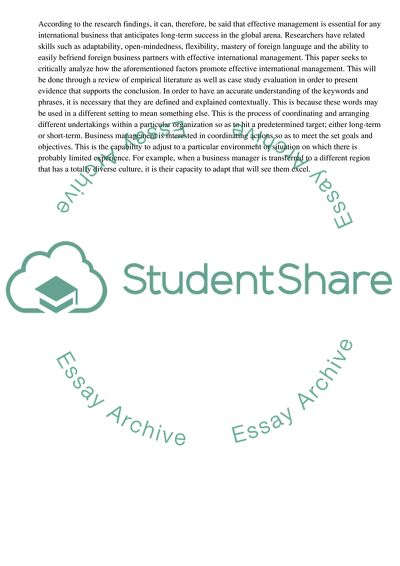Cite this document
(Qualities of an Effective International Manager Coursework - 2, n.d.)
Qualities of an Effective International Manager Coursework - 2. Retrieved from https://studentshare.org/management/1863435-coursework-1
Qualities of an Effective International Manager Coursework - 2. Retrieved from https://studentshare.org/management/1863435-coursework-1
(Qualities of an Effective International Manager Coursework - 2)
Qualities of an Effective International Manager Coursework - 2. https://studentshare.org/management/1863435-coursework-1.
Qualities of an Effective International Manager Coursework - 2. https://studentshare.org/management/1863435-coursework-1.
“Qualities of an Effective International Manager Coursework - 2”, n.d. https://studentshare.org/management/1863435-coursework-1.


